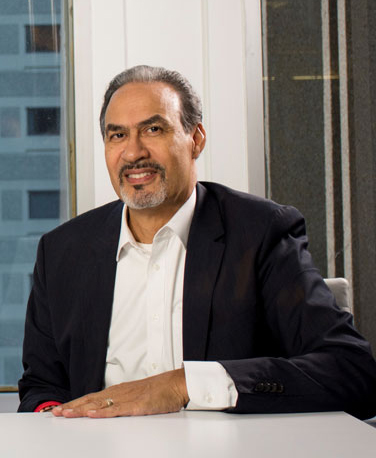In Memoriam: Philip Goodwin Freelon LF ’90
Philip Goodwin Freelon (1953–2019) LF ’90 died on July 9, 2019 at the age of 66. The renowned architect, designer, husband, and father of three left an indelible mark on the world of architecture and design, most recently with the opening of the Smithsonian Institution’s National Museum of African American History and Culture in Washington D.C., for which he served as lead architect.
An esteemed member of the Harvard Graduate School of Design community, Freelon first came to the GSD in 1989 as a recipient of the Loeb Fellowship. More recently, he established the Phil Freelon Fellowship Fund, which expanded opportunities for African American and other underrepresented students, and collaborated on the creation of the African American Design Nexus.
Freelon was a passionate and committed advocate for equity, access, and representation in design and the arts. In establishing the Freelon Group in 1990, he sought to bring inspiring design to people and places that had often been overlooked. The Freelon Group would eventually become one of the nation’s largest African American-owned architecture firms. Freelon believed that diverse teams can produce remarkable results. His most celebrated projects include the National Center for Civil and Human Rights in Atlanta, the Harvey B. Gantt Center in Charlotte, the Museum of the African Diaspora in San Francisco and Emancipation Park in Houston.
Philip Goodwin Freelon was an architect whose influence transcends his landmark projects, his decades of teaching and mentorship, and his focused, committed activism for diversity and representation in design. The design world has suffered an enormous loss, and the GSD community honors and celebrates Phil and his profound legacy.

